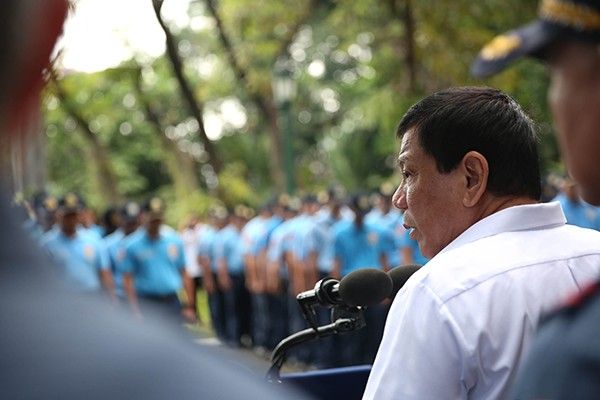Palace: ICC conclusion on drug war is 'no big deal'

MANILA, Philippines — The International Criminal Court (ICC) chief prosecutor's request for an authority to probe the Philippines' drug war is "no big deal" as it cited media reports that won't stand in court, Malacañang said Thursday.
Roque said President Rodrigo Duterte's immediate reaction to the 52-page opinion of ICC chief prosecutor Fatou Bensouda was to ask why she cited media reports, which he dismissed as "hearsay."
"You know, he (Duterte) shrugged (it) off... Media sources, all lawyers know...will not stand in court. And since you need the judicial authorization to proceed (with) an investigation, lawyers know that you cannot start any proceedings on the basis of hearsay evidence," Roque said at a press briefing.
"So, we are confident. Even if an investigation pushes through, what I am saying is if all of the sources to be used come from the media or left-leaning groups, that won't stand because there is a stage in the ICC called confirmation of charges," he added.
Roque said the confirmation of charges by a pre-trial chamber is what makes the ICC different from domestic courts.
"After we saw the 52-page decision, knowing that they were citing Rappler and ABS-CBN and Inquirer, e medyo napayapa na po kami (we were somehow relieved) because in law, all these newspaper accounts are mere hearsay," the Palace spokesman said.
A day before she retired from the ICC, Bensouda sought an authorization to investigate the Duterte administration's controversial war on narcotics but Malacañang insists that the court has no jurisdiction over the matter because the Philippines is no longer a member of the court. Bensouda, whom Duterte had threatened to slap if she comes to the Philippines, said there is "reasonable basis" to believe that the crime against humanity of murder has been committed between July 1, 2016 and March 16, 2019 in connection with the drug war.
"Following a thorough preliminary examination process, the available information indicates that members of the Philippine National Police, and others acting in concert with them, have unlawfully killed between several thousand and tens of thousands of civilians during that time," Bensouda said in a statement issued last June 14.
"My Office has also reviewed information related to allegations of torture and other inhumane acts, and related events as early as 1 November 2011, the beginning of the Court's jurisdiction in the Philippines, all of which we believe require investigation," she added.
Roque admitted that his emotional outburst during a press briefing with police officials last Tuesday was uncalled given the type of evidence cited by Bensouda. During that briefing, Roque claimed the case against the president was politically motivated.
"But at the time I had that press briefing, I had not yet seen the 52-page opinion. So it’s no big deal, and we will allow and let the DOJ (Department of Justice) do its job, because that is really the obligation of the Philippine state to investigate, prosecute and punish if need be," the Palace spokesman said.
"The DOJ and an Inter-Agency body created by EO (Executive Order) 35 are now investigating...and we will file charges and punish those who are guilty of murder. And the president has also repeated that he would support policemen whose actions are legal. If it is against the law, he won't support it," he added.
In 2018, Duterte withdrew the Philippines from the Rome Statute, the treaty that formed the ICC, after the ICC announced that it would conduct a preliminary examination on his drug crackdown.
Bensouda has maintained that while the Philippines' withdrawal from the statute took effect on March 17, 2019, the ICC retains jurisdiction over crimes that are alleged to have occurred on the territory of that state during the period when it was a party to the agreement.
- Latest
- Trending


























